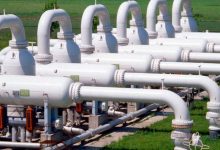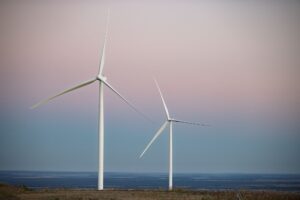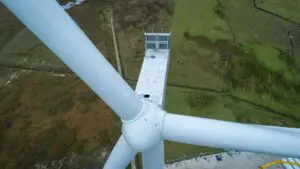An Australian-first project that will demonstrate the potential for green hydrogen to be stored and transported for use via Australia’s existing gas networks has won the backing of the Australian Renewable Energy Agency.
The $15 million, two-year trial – led by gas network operator, Jemena – will produce renewable hydrogen from solar and wind energy, and inject it into the local LNG network.
Jemena – which has a network of 1.3 million gas customers in New South Wales – will produce the green hydrogen via a demonstration-scale 500kW electrolyser, which it will build at its facility in western Sydney.
ARENA said on Monday that it would contribute $7.5 million in funding to the trial – known as Project H2GO – in an effort to test renewable hydrogen for domestic use and demonstrate the potential for its storage in gas networks.
According to ARENA, Hydrogen can be safely added to the natural gas mains at concentrations of up to 10 per cent without affecting pipelines, appliances or regulations.
The trial with Jemena, however, would explore the technical, regulatory, environmental and economic barriers to the production and use of hydrogen in various Australian conditions.
Some of the hydrogen produced by the electrolyser will also be used in a gas engine generator for electricity generation back into the grid, as well as in an onsite Hydrogen Refuelling Station for fuel cell vehicles.
ARENA CEO Darren Miller said hydrogen had huge potential to store renewable energy and supplement natural gas use, as well as a potentially valuable export commodity.
Indeed, green hydrogen production and usage has been a major focus of the Agency in recent times, including $22.1 million in grant funding to 16 different and national research and development projects.
The funding, announced last month, was offered to research teams from nine Australian universities and organisations including the ANU, Macquarie and Monash Universities, QUT, RMIT, The University of Melbourne, UNSW, the University of WA, and the CSIRO.
It followed up on the release of two major studies: one by the CSIRO that claimed clean hydrogen could be cost-competitive with existing industrial fuels like natural gas, and with emerging energy storage technologies like batteries, by 2025; and another by Australia’s chief scientist, Alan Finkel.
The CSIRO’s National Hydrogen Roadmap report said Australia had an “urgent” opportunity to establish a “hydrogen economy,” that would allow its rich renewable resources to be exported around the world.
ARENA is also part of the Hydrogen Strategy Group, chaired by Finkel, that is working with the COAG Energy Council.
“As Australia transitions to renewable energy, hydrogen could play an important role as energy storage and also has the effect of decarbonising the gas network with ‘green’ gas,” Miller said in comments on Monday.
“There is significant potential in the power-to-gas value chain including the ability to stabilise the grid as well as pairing renewable energy with electrolysers to soak up and store surplus electricity,” he said.
Frank Turdor, the managing director of Jemena, said power to gas technology could provide a crucial key to making renewable energy dispatchable.
“In the future Australians will need to decide what to do with excess renewable energy on very windy or very sunny days,” he said.
“Jemena’s Project H2GO will demonstrate how existing gas pipeline technology can store excess renewable energy for weeks and months, making it more efficient than batteries which can only store excess renewable energy for minutes or hours.”







